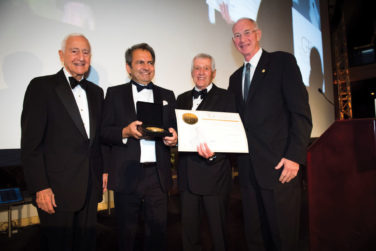When is a salesman not a salesman?
That was the question facing the U.S. Supreme Court on April 16, as it heard oral arguments in Michael Shane Christopher, et al. v. SmithKline Beecham Corporation, d/b/a GlaxoSmithKline. As a riddle, it may not rank with the Mad Hatter’s “Why is a raven like a writing desk?,” but— unlike that famous query—this one may have a definitive answer.
At issue is a 2011 decision by the Ninth Circuit Court of Appeals, affirming a lower court ruling that pharmaceutical sales representatives are outside sales people, exempt from overtime compensation required by the Fair Labor Standards Act (FLSA).
The decision turns on whether a detail representative actually engages in sales. The Ninth Circuit said “Yes”:
As in prior eras, a salesperson learns the nuances of a product and those of his or her potential clientele, tailors a scripted message based on intuition about the customer, asks for the customer to consider her need for the product, and then receives a commission when the customer’s positive impression ultimately results in a purchase.
For the past seventy-plus years, selling in the pharmaceutical industry has followed this process. PSRs are driven by their own ambition and rewarded with commissions when their efforts generate new sales. They receive their commissions in lieu of overtime and enjoy a largely autonomous worklife outside of an office. The pharmaceutical industry’s representatives— detail men and women— share many more similarities than differences with their colleagues in other sales fields, and we hold that they are exempt from the FLSA overtime-pay requirement.1
But lawyers for Christopher and Frank Buchanan, former SmithKline Beecham sales reps who filed suit for overtime pay, say “No.” The detail reps’ responsibility, they say, is to promote, not to sell. In fact, their brief claims the reps “were prohibited by both law and industry practice from actually selling respondent’s products, and did not do so.” Complicating the issue, the U.S. Department of Labor has reversed decades of tacit acceptance of detail reps as outside sales people, redefining the sales reps’ function as “promotion,” not sales, and joining with Christopher and Buchanan.
TWO BASIC QUESTIONS
The April 16 arguments thus addressed two basic questions: whether the courts should accept the Labor Department’s current definitions in deciding the case, and whether the FLSA’s outside sales exemption applies to detail reps.
Thomas C. Goldstein opened for the petitioners, getting straight to the heart of their argument: “Everyone agrees that a pharmaceutical detailer engages in promotion. They tout drugs to doctors. Everyone agrees that there can’t be a commitment to issue a prescription. Everyone agrees that a prescription is not an exchange with a pharmaceutical company.”
Justices soon interrupted with questions about what does and does not constitute a sale. Is a direct transfer of title necessary, or is a commitment to a future action—such as a contingency sale—sufficient? Others queried the reps’ degree of autonomy, a key component of the “outside sales” definition.
Deputy Solicitor General Malcolm L. Stewart supported the sales reps’ argument on behalf of the U.S. Department of Labor, but managed only two sentences before being asked to weigh in on the issue of what really makes a sale a sale. “We’ve never encountered a situation in which DOL has found a sale of goods without a transfer of title,” he replied.
DEFENDING PHARMA
Arguing on behalf of respondent GlaxoSmithKline, Paul D. Clement faced stiffer questioning from the bench.
“Petitioners are two pharmaceutical sales representatives,” Clement opened. “They were hired for a sales job. They were given sales training. They attend sales conferences. They are assigned a sales territory, and they are evaluated and compensated as sales people….”
At this point, Chief Justice John Roberts interjected, “And they don’t do sales.”
Clement countered that reps do produce sales in a meaningful way, and that they are compensated according to sales performance in their territories, whether or not there is any direct transaction with doctors…or, indeed, patients. Clement also criticized the Department of Labor for what he characterized as a possibly unfair change of policy and definitions that disrupted decades of accepted practice.
REFERENCE 1. Christopher v. SmithKline Beecham Corp., 635 F.3d 383, 17 WH Cases2d 353 (9th Cir. 2011) [2011 BL 37903]




